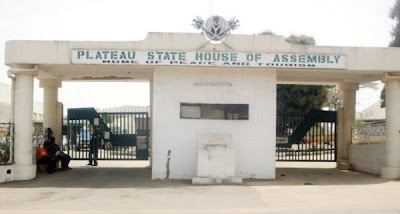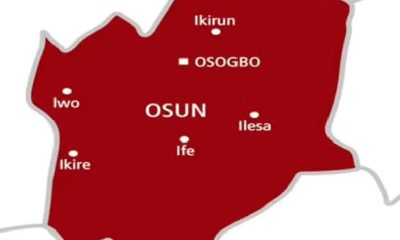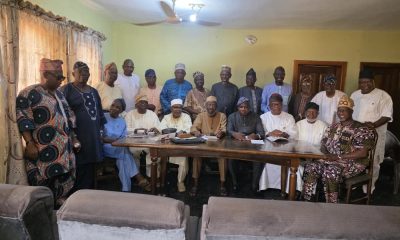News
Plateau Penal Code Passes Second Reading

By Jide Afolabi, Jos
Bill seeking to enact the Plateau State Penal Code on Tuesday passes second reading on the floor of the Plateau State House of Assembly.
The Majority Leader of the House, Mr. Henry Yunkwap, presented the bill for deliberation and stated that the bill, if passed into law, would address penalties for contemporary crimes.
Yunkwap stated that Plateau needed its own penal code because the penal code of Northern Nigeria, being used in the state, had become “out-dated and obsolete”.
He established that the bill contained 398 clauses and 31 chapters and has capacity to address primary, secondary and tertiary crimes in the state.
He said “Mr. Speaker, considering the new dimension of crime in our present day, the need to have our own penal code law in the state is long overdue.
“The existing one, adopted from Northern Nigeria, was enacted since 1963 and has become obsolete.
“There is the dire need for us to have our own penal code so as to capture new crimes that go with our globalised world”.
Mr. Yusuf Gagdi, the Deputy Speaker of the House while contributing said that the bill was apt “especially since it is seeking to address the problems of jungle justice and administration of bad customs by some communities”.
He said that the bill, if passed into law, would reduce petty crimes, stressing that “a lawless society is a hopeless society”.
He admonished his colleagues to give the bill an accelerated hearing and passage into law.
The Chief Whip of the House, Mr. Joshua Madaki, in his contribution said, “The bill seeks to review some existing fines to match present realities. Some fines are still N5; some N20 or N50. Such fines are certainly not realistic”.
The House extensively deliberated on the bill and later committed it to its standing committees on Judiciary, Finance and Security for further scrutiny and legislative inputs.
The committees are expected to present their reports within two months after public hearing must have been conducted.
-

 Opinion4 days ago
Opinion4 days agoThe Clout-chasing Dipo Awojide By Comrade Da’Peace
-

 News3 days ago
News3 days agoRamadan, Lent: Shettima Calls For National Unity And Compassion
-

 News5 days ago
News5 days ago2026: Let’s Work Hand In Hand To Ensure Party’s Victory, APC Igbimo-Agba Osun Urges Ex-guber Aspirants, Party Members
-

 Opinion3 days ago
Opinion3 days agoReinventing Osun’s Economy Through Dagbolu Intl. Trade Centre: From Quiet Market Lessons To Regional Trade Revolution By Adeboye Adebayo


